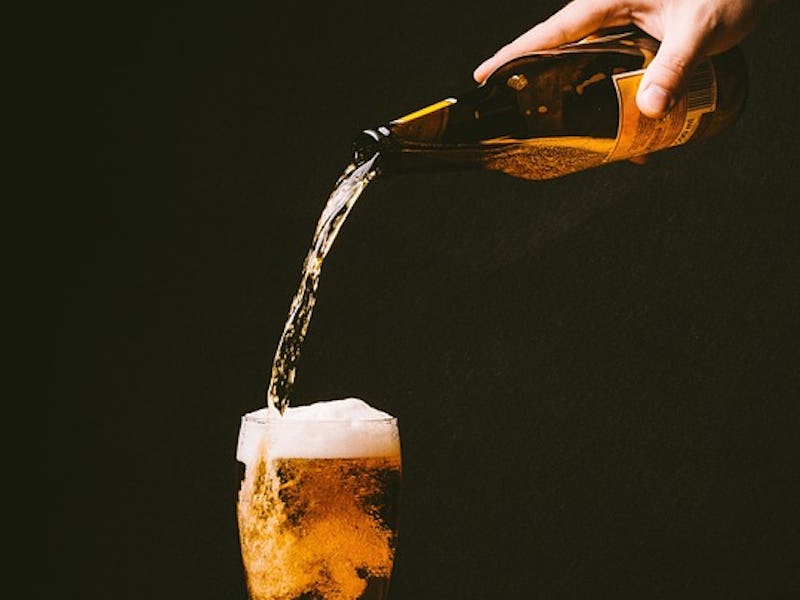Oldest Evidence of Beer Brewing Proves Ancient Drinking Was Spiritual
This beer was more like gruel than a Bud.

Unwinding with a beer is a modern-day pastime, but for ancient humans the act was more than just 5 o’clock fun, it was a spiritual experience. That’s the recent conclusion of an archeological collaboration between Stanford University and the University of Haifa in which the scientists procured the oldest evidence ever found of man-made alcohol.
The researchers found evidence of beer-brewing in an Israeli cave near Haifa, suggesting that the practice existed at least five millennia before the previous earliest known proof of beer. Beer brewing is now thought to be between 11,700 and 13,7000 years old. However, the researchers are careful to point out in their study, published last week in the Journal of Archeological Science, that this ancient beer was quite unlike the brews we chug today. It was very low in alcoholic content and was a much thicker concoction, similar to a porridge or thin gruel — not really what you would want to work with during flip cup.
Scientists found evidence of this ancient beer by accident when they were analyzing residue samples gathered from stone mortals found in Raqefet Cave, a graveyard site cared for by the Natufian people thousands of years ago. The Natufian were semi-sedentary hunter-gatherers who lived along the eastern Mediterranean. Previous excavations at the site revealed the burial of about 30 people, flint tools, and, debatably, the earliest indication of the use of flower beds on graves.
The location of Raqefet Cave and the artifacts analyzed.
Now it appears the cave was used as a brewery as well — something that’s long been hypothesized in the archeological world but never confirmed. Scientists concluded that the mortars they found were used in a beer-brewing process because of residual remains of starch and microscopic plant particles known as phytolith, which emerge when cereal grains are transforming into alcohol. The team also conducted a series of experiments where they attempted to recreate each step the Natufians likely took to make their beer and ended up with a gruel of their own.
The fact that beer-brewing was taking place in a graveyard signifies to the researchers that it was an emotional ritual tied to honoring ancestors.
“This discovery indicates that making alcohol was not necessarily a result of agricultural surplus production, but it was developed for ritual purposes and spiritual needs, at least to some extent, prior to agriculture,” Stanford professor Li Liu, Ph.D., said Thursday.
That latter part is key: Liu and her colleagues believe this discovery also means that the creation of beer prompted the original domestication of cereal grains like wheat. Previously, some academics theorized the opposite and argued beer was a result of agricultural surplus. Now, it seems both beer and bread production precedes cereal domestication, which likely occurred about 4,000 years later.
Cereal domestication — while less fun than beer — would turn out to be an utterly revolutionary game changer for humans. Raising and storing cereal grains helped humans transition to a sedentary life, and allowed permanent settlements to arise. Today about 80 percent of the protein and over 50 percent of the calories consumed by humans comes from cereal grains, sometimes served with a nice beer.